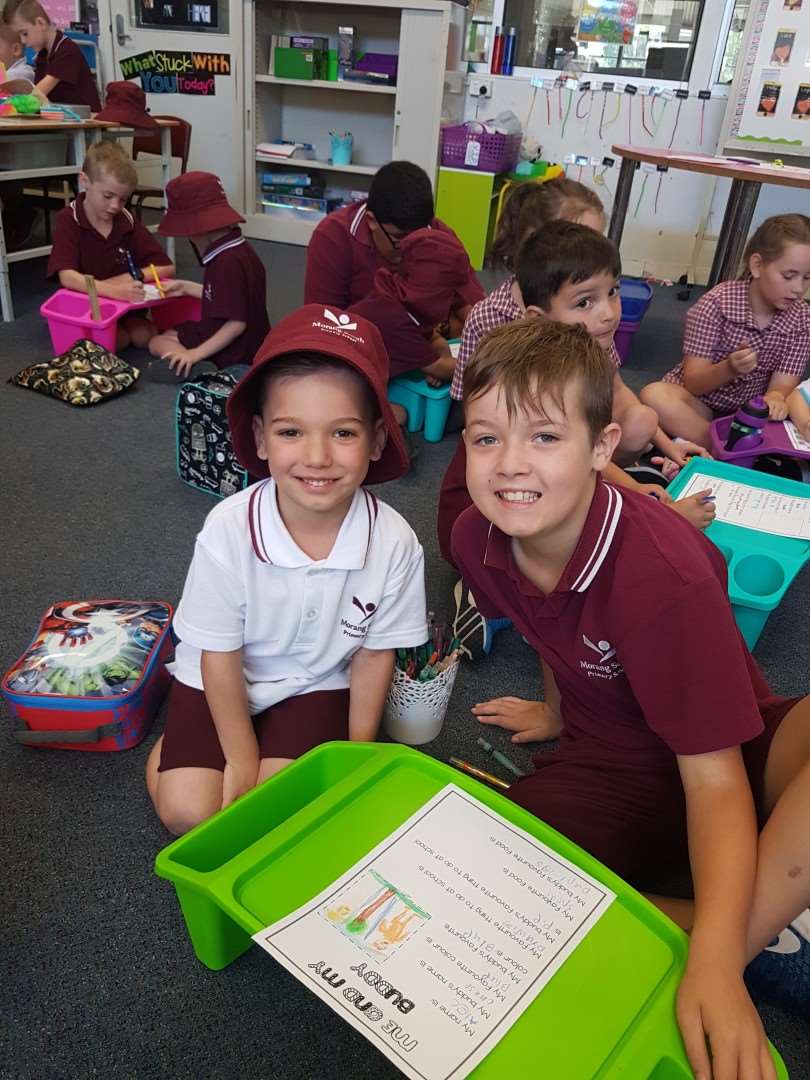In the Classroom
The classroom is a dynamic environment. A classroom brings together children with a variety of experiences, various abilities and personalities from many different backgrounds. Our teachers use a variety of different creative approaches and strategies in order to meet students’ individual needs within our classroom environments
Buddies
Our buddy program is designed to provide peer support and foster friendship across the whole school. This program looks to support leadership and mentoring skills among our senior students, while providing guidance and support for our juniors. Each child from Prep-2 are assigned a buddy from Grade 3-6. Throughout the year, these pairs will undertake structured activities together as the students look to build strong relationships across the varied age groupings. Over the course of the year as the buddy relationship grows, older students develop their mentoring skills as they assist and guide their younger peers through the early years of primary school.
Discovery Play
Play is as natural way for a child to make sense of the world around them. It is also recognised as a powerful developmental force that encourages exploration, risk taking, the development of social networks and engagement with learning. Across our junior school, Discovery Play is an important part of Morang South Primary School’s approach to student learning. Play experiences are designed by teachers to encourage team work, develop motor skills, encourage curiosity, foster communicative skills, develop creativity and critical thinking, and to learn about how and why things work. Children learn best by doing, so this type of structured playing is a natural fit for their development.
Games for learning
Games are part of the way we connect with others, problem-solving, experiment, exploration identities, and challenge ourselves. Games in learning are fun, motivating and ask us to learn to collaborate and work with others. In our classrooms, you will see students involved in all sorts of learning games that help develop all attributes that promote success.


Cooperative learning and collaborations
At Morang South Primary School, many opportunities, both formally and informally, are given to students to work cooperatively with each other. Working with other students not only makes the activity more engaging, it encourages teamwork and assists with tackling more difficult tasks, where students can learn from each other. Whether it be students being grouped to share ideas on a topic or discuss a book, or a more structured collaborative project where students are assigned roles and work together to achieve a common result, cooperative learning and student collaboration is a teaching strategy used to develop each student’s interpersonal skills of leadership, trust-building, decision making, communication and conflict management.
Group-based learning
Providing for the different interests, paces of learning, abilities and needs of students is a priority at Morang South Primary School. In our classrooms and across the school you will see different groupings of students for a variety of purposes. Whether it is grouping students needing instruction on a similar concept or understanding, grouping students with similar interests in our Curiosity Program, bringing students of different abilities together to co-learn and challenge each other, or grouping students across year-levels to develop communicative skills and build relationships, we believe in working to provide programs which meet students individual needs.
Intellectual engagement
We believe that it is important that students are engaged in what they are learning as it gives the students a sense of belonging and ownership at school. Teachers carefully plan activities across all curriculum areas to promote engagement and ‘hands on’ learning. Our aim is to have vibrant classrooms where students are discussing, questioning and discovering for themselves. Questioning at Morang South Primary School is a focus for both teachers and students. We want students to be curious about the world around them and in this digital age of information to be able to question the validity of what they read or see. Throughout all programs, the development of questions and our student enquiry is a focus.

